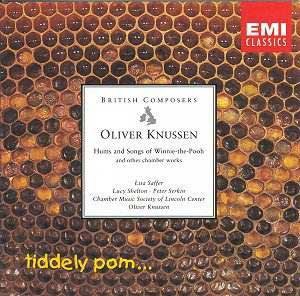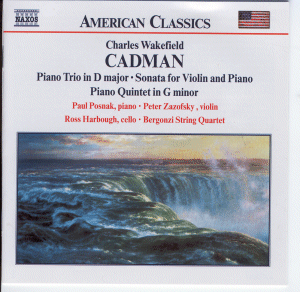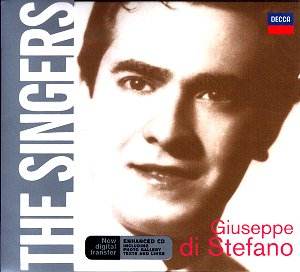 Composer: Oliver Knussen
Composer: Oliver Knussen
Works: Songs without Voices Op.26; Whitman Settings Op. 25; Hums and Songs of Winnie the Pooh Op. 6; Variations for solo piano Op.24; Four Late Poems and an Epigram of Rainer Maria Rilke Op.23; Sonya’s Lullaby Op.16; Océan de terre Op.10
Performers: Lisa Saffer (soprano), Lucy Shelton (soprano), Peter Serkin (piano), Chamber Music Society of Lincoln Center/Oliver Knussen
Recording: Recorded in the Recital Hall, Performing Arts Center, State University of New York at Purchase, New York, February, April and May, 1992
Label: EMI
The rich tapestry of Oliver Knussen’s chamber works, collected in this generous anthology, offers a compelling glimpse into the mind of one of Britain’s most distinctive contemporary composers. Knussen’s oeuvre, often characterized by its blend of lyrical beauty and complex textures, draws on a multitude of influences while maintaining an unmistakable voice. This recording, made during the early 1990s when Knussen was the Elise L. Stoeger Composer’s Chair at the Chamber Music Society of Lincoln Center, provides an authoritative and intimate perspective on his chamber music at a time when he was deeply engaged with the art of song and instrumental interplay.
Performances throughout the disc are noteworthy not only for their technical precision but also for the interpretative depth brought by the artists. Lucy Shelton’s portrayal of the Whitman Settings stands out; her crystalline diction and expressive phrasing elevate the settings of these poems, allowing the listener to savor the lush lyricism of Knussen’s compositions. The piano, played by Peter Serkin, complements her voice with a rich sonority that deftly balances power and sensitivity. The opening song, “When I heard the learn’d astronomer,” illustrates this interplay beautifully, with Shelton’s voice floating effortlessly over the intricate piano lines, creating an ethereal atmosphere that encapsulates Whitman’s exploration of nature and existence.
The disc also features the intriguing “Océan de terre,” based on Apollinaire’s surrealist poetry. Here, the complexity of Knussen’s harmonic language is on full display, with dense textures and dissonances that challenge the listener’s perception. The absence of texts necessitates a more abstract interpretation, yet the ethereal quality achieved by Shelton’s voice against the turbulent piano provides a visceral experience that evokes the poem’s dreamlike imagery. The tension between the twelve-note chord blocks, based on fourths, creates a rich sonic landscape that is both disturbing and beautiful.
Knussen’s “Variations for solo piano” is a masterclass in the compression of thematic material. Peter Serkin’s performance navigates the piece’s technical demands with thrilling virtuosity, demonstrating a keen understanding of the interplay between rhythmic drive and lyrical expression. The influence of Stravinsky and Webern is palpable here, particularly in how Knussen employs extreme contrasts to develop his limited thematic material—this single theme, derived from the first six notes, is transformed through various articulations and atmospheres throughout the variations, showcasing the pianist’s prowess while illuminating Knussen’s compositional ingenuity.
The recording quality merits special mention, as it resides firmly in the demonstration bracket, capturing the nuances of each performance with remarkable clarity. The engineering balances the voices and piano with acute precision, allowing the subtleties of Knussen’s textures to emerge distinctly. This aspect is crucial in works like the “Songs without Voices,” where the interplay between instruments and the evocation of silence are fundamental to the piece’s character.
Knussen’s ability to weave personal and emotional narratives into his music is particularly evident in “Sonya’s Lullaby,” a tender reflection inspired by his daughter. The piano’s gentle undulations cradle the listener in an intimate embrace, further enhanced by Serkin’s sensitive touch. This personal quality permeates the disc, uniting the works thematically while showcasing Knussen’s diverse approaches to vocal and instrumental writing.
This collection stands as an essential representation of Knussen’s chamber music, encapsulating his unique voice within the contemporary British music scene. The performances are not only technically accomplished but also rich in interpretive insight, providing a rewarding listening experience for both seasoned admirers of Knussen and newcomers alike. The historical context, combined with the artists’ dedication and the excellent sound quality, solidifies this recording as a significant contribution to the catalog of modern chamber music.



